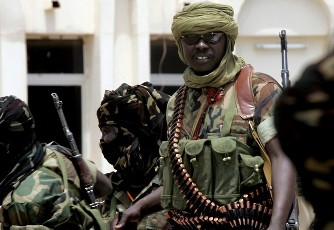Fierce battles erupt in South Darfur between Sudan army and SLA-MM
February 14, 2013 (KHARTOUM) – The Sudanese Armed Forces (SAF) and Sudan Liberation Army of Minni Minnawi (SLA-MM) have clashed in different parts of South Darfur on Thursday amid reports of heavy casualties.

Al-Sakin said that SAF are in full control of the situation adding that they are currently chasing the rebels. He said that the one person was killed from SAF’s side and that the several soldiers who were injured are being treated in Nyala hospital.
But multiple sources told Sudan Tribune that SAF suffered heavy losses in the battle and that the rebels managed to seize a number of army vehicles
In Nyala, tension was growing among the residents amid rumors that rebels are closing in on the city. The local government has started mobilising paramilitary units to secure the state and stop any possible rebel attack.
Saleh Abakr, a spokesperson of Sudan Revolutionary Front (SRF), of which SLA-MM is a member, claimed that they are now in control of Oum-Gounga, Baleel locality and South Railroad region. He said that they have inflicted heavy losses on SAF and captured 11 military vehicles and a large cache of ammunition.
In a related development, the Sudanese defense ministry on its website said that SLA-MM attacked al-Half area in North Darfur and briefly captured it before SAF intervened to reclaim it.
Violence in Darfur has ebbed from the 2003-04 peak but fighting still occurs as several rounds of peace talks have failed. The United Nations has estimated that around 300,000 people have died during the conflict in Darfur and some 2 million people been displaced. Khartoum puts the death toll at 10,000.
Fighting flared again at the end of December in Darfur’s Jebel Marra area, prized for its fertile land, and more than 30,000 people have fled the region, the United Nations said.
(ST)
